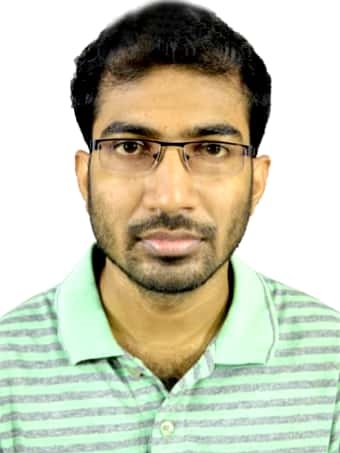Subhadeep Maiti
M.Tech in Computer Technology, JU Assistant Professor (Department of CSC) in JLD Engineering College
C++ is a powerful programming language widely used for developing a variety of software applications. It is known for its efficiency, flexibility, and wide range of capabilities. C++ supports both procedural and object-oriented programming paradigms, allowing developers to write modular and reusable code.
One of the main advantages of C++ is its performance. It offers low-level control over hardware resources, making it suitable for developing resource-intensive applications like video games or real-time systems. Additionally, C++ provides features like templates, operator overloading, and inline functions, which enable developers to write highly optimized code.
C++ is also a popular choice for system programming and building libraries, as it allows for direct memory manipulation and fine-grained control over system resources. It has a large standard library and supports multiple paradigms, such as generic programming with templates and exception handling.
Learning C++ requires understanding concepts like data types, control structures, functions, classes, and pointers. It is a language that requires attention to detail and a solid understanding of programming principles.
Overall, C++ is a versatile language suitable for various domains, making it a valuable skill for programmers who want to develop efficient and high-performance applications.
1. Introduction to C++ programming language and its features.
2. Understanding and using variables, data types, and operators.
3. Implementing control structures like loops and conditional statements.
4. Working with functions to modularize code and improve code reusability.
5. Arrays and strings manipulation for efficient data handling.
6. Pointers and memory management for advanced programming techniques.
7. Object-oriented programming principles and concepts.
8. Classes and objects creation for encapsulating data and behavior.
9. Inheritance and polymorphism for code organization and extensibility.
10. Handling exceptions to gracefully manage runtime errors.
11. Input and output operations for interacting with users and files.
12. Basic algorithms and data structures for efficient problem-solving.
August January
Start Date : 2023-08-05
End Date : 2024-01-31
Place : Jadavpur
Timing : 4pm - 6pm

M.Tech in Computer Technology, JU Assistant Professor (Department of CSC) in JLD Engineering College

M.Tech in Computer Technology, JU Lecturer in JLD Engineering College
1. Introduction to C++
- Overview of C++ and its history
- Setting up a development environment (IDE and compiler)
- Hello World program in C++
2. Variables and Data Types
- Fundamental data types (integers, floating-point numbers, characters, booleans)
- Variable declaration and initialization
- Type modifiers (const, volatile, etc.)
- Type conversions and casting
3. Control Structures
- Conditional statements (if, else-if, switch)
- Looping structures (for, while, do-while)
- Control flow statements (break, continue, goto)
4. Functions
- Defining and calling functions
- Function parameters (pass by value, pass by reference)
- Function overloading
- Recursive functions
5. Arrays and Strings
- Declaring and accessing arrays
- Multidimensional arrays
- Manipulating strings (C-style strings and C++ string class)
6. Pointers and References
- Introduction to pointers and memory management
- Pointers and arrays
- Pointers and functions
- References and aliasing
7. Object-Oriented Programming (OOP) Basics
- Introduction to classes and objects
- Encapsulation, inheritance, and polymorphism
- Constructors and destructors
- Access specifiers (public, private, protected)
8. Object-Oriented Programming (OOP) Advanced Concepts
- Operator overloading
- Function overloading and overriding
- Inheritance and virtual functions
- Abstract classes and interfaces
9. Exception Handling
- Handling and throwing exceptions
- try-catch blocks
- Exception hierarchy and custom exceptions
10. File Input/Output
- Reading from and writing to files
- File streams (ifstream, ofstream, fstream)
- Error handling with files
.
3.8 |
5 reviews |

June 17, 2023 at 09:04 am
Some assignments need more detailed instructions. Overall good course.


June 17, 2023 at 07:11 am
In general the chosen topics are good and I like the professor. However, the are two big things which I believe need improvement: 1. Videos are often not in order, so you are not sure what is going on. I'm pretty sure that without background in other programming languages I would have been lost 2. I think it's better to sometimes skip more sophisticated discussions and say "don't worry about this now we will discuss this later on". I think for a basics course there were too many discussions of that kind along the way

June 17, 2023 at 07:02 am
It was really great experience studying in this course.The professor is great, but the part of the course is its well managed assignments and quizzes. Again Hats off to whole team.
SARA MUKHERJEE
June 17, 2023 at 09:17 am
Enjoy very much this course, its knowledge and exercises